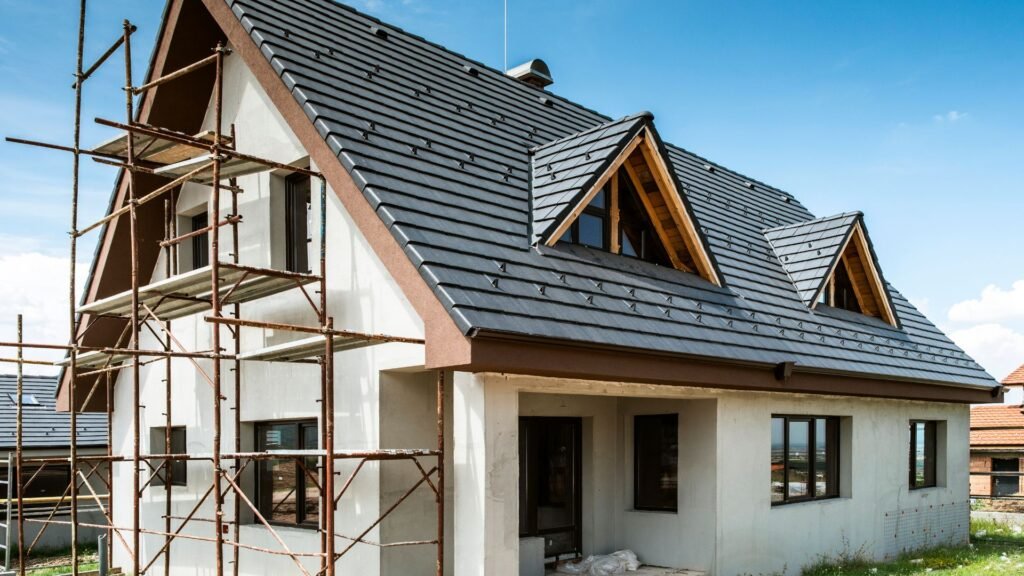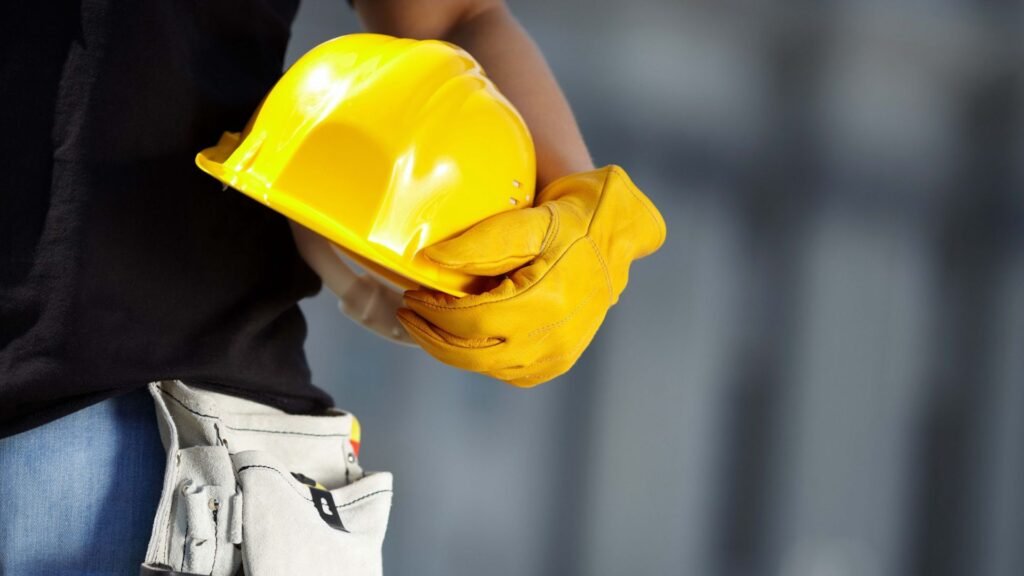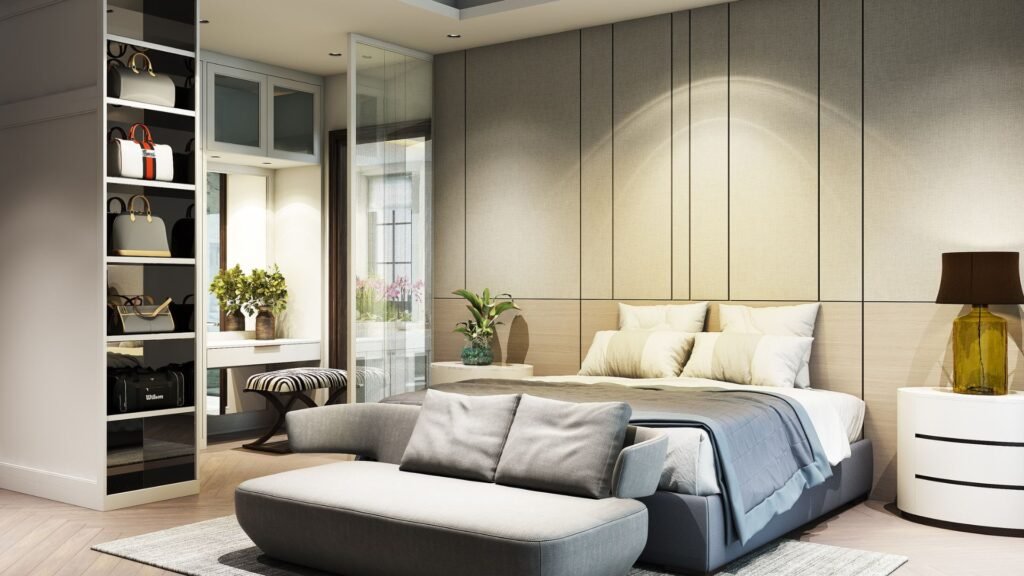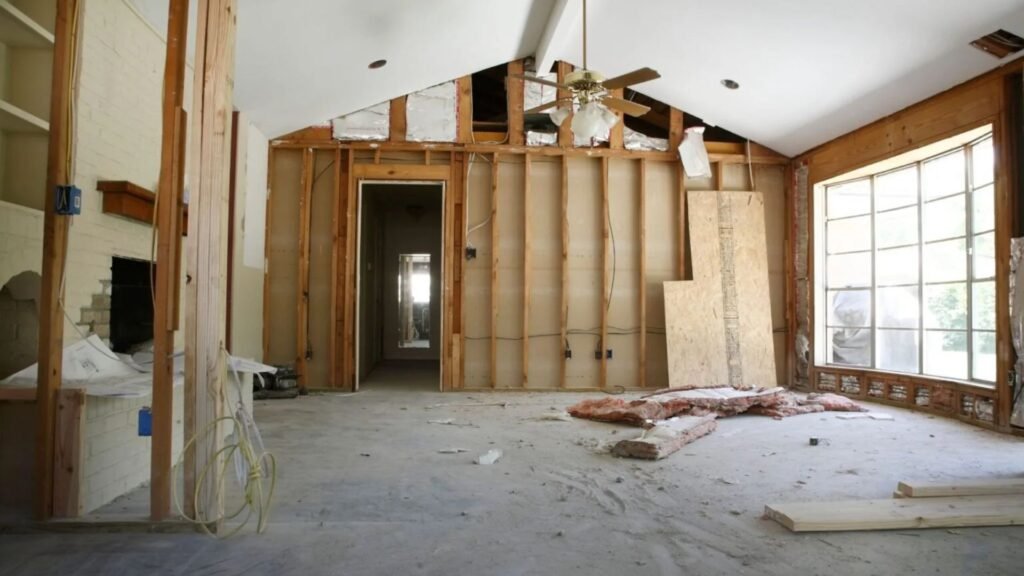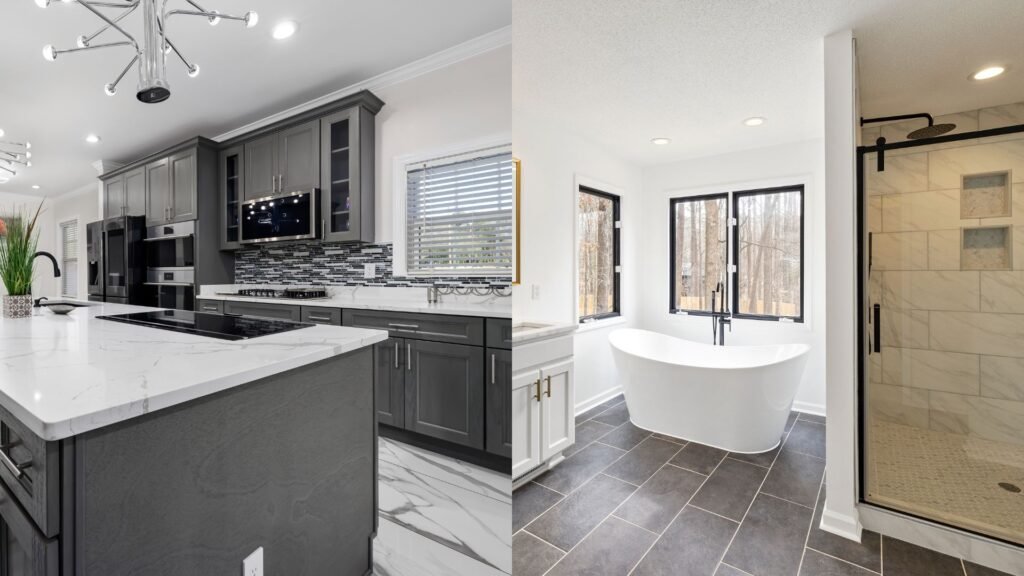Welcome to your guide on understanding the new build cost in NZ, a topic on the minds of many Kiwis looking to create their dream home. Building a new house isn’t just about laying bricks and timber; it’s about making choices that fit your budget, lifestyle, and long-term goals. While you may hear rough averages like a cost per square metre, the truth is that the final price depends on many factors such as location, size, design, materials, and council requirements. For example, a standard three-bedroom home in Christchurch may cost far less than a custom build in central Auckland. That’s why this article will walk you through average costs, break down where your money goes, highlight hidden expenses, and share practical tips to help you budget with confidence. Whether you’re a first-time builder or planning an upgrade, this guide will give you a clear, people-first overview of what to expect when considering a new build in New Zealand.
The average new build cost in NZ ranges from $2,500 to $4,000 per square metre, depending on location, size, design, and materials. A standard 3-bedroom home can cost between $450,000 and $600,000, while custom or high-spec builds in cities like Auckland may exceed $700,000. Costs also include site preparation, professional fees, and council consents.
Table of Contents
What’s The Average New Build Cost In NZ?
When people ask about the average new build cost NZ per square metre, the first thing to know is that it usually falls between $2,500 and $4,000. This range depends on a mix of factors, including where you are building, the size of your home, and the type of finishes you choose. While it’s tempting to use a single figure as a benchmark, costs can vary widely from one project to another.
To put this into perspective, a standard 3-bedroom home in New Zealand typically costs around $450,000 to $600,000. These builds often use practical layouts and mid-range materials, making them more affordable for families and first-time buyers. On the other hand, a high-spec custom build can easily exceed $700,000 or more, especially if it includes premium fixtures, eco-friendly features, or complex architectural designs.
It’s also important to understand that averages are just a starting point. While cost per square metre figures help with early planning, they don’t capture the full picture. Factors like site preparation, council consents, or material price increases can quickly change the final total. For this reason, anyone planning a new build in New Zealand should treat average costs as a guide rather than a fixed price tag. The smartest approach is to get tailored quotes from multiple builders and allow room in your budget for unexpected expenses.
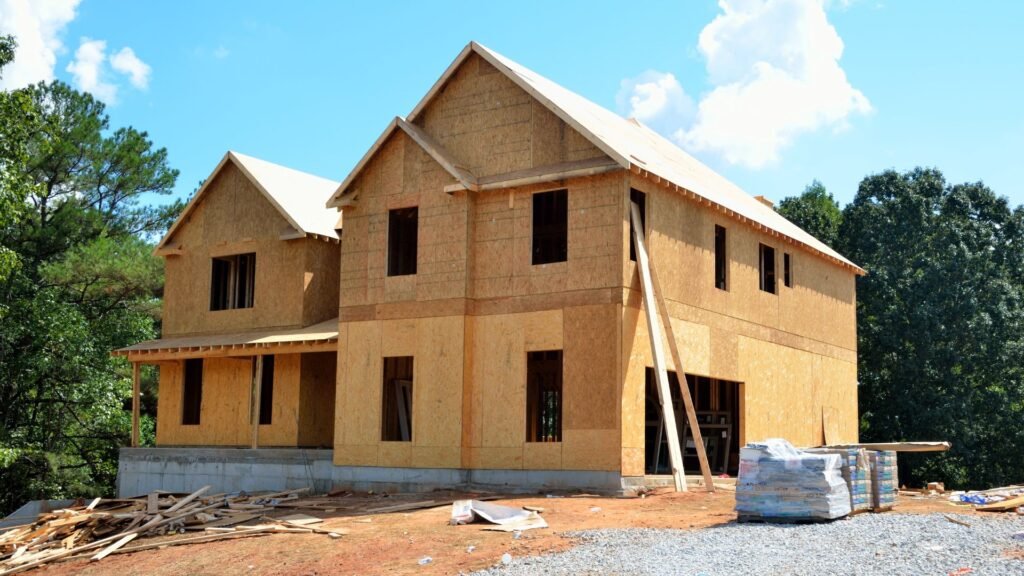
Key Factors That Influence New Build Costs
When looking at the new build cost in NZ, it’s clear that the final price depends on more than just the size of the house. Several factors work together to shape your overall budget. Below are the main elements that have the biggest impact, with examples to help you see how they apply in real situations.
Location (Auckland Vs. Christchurch Vs. Rural Areas)
Where you choose to build has one of the biggest effects on your overall cost. Building in Auckland generally comes with the highest price tag because land values, labour costs, and demand are all higher. Christchurch and Wellington usually sit in the middle range, while rural areas often come with lower costs for labour and land.
For example, a 200-square-metre home might cost around $600,000 in Auckland, but the same house could be built for closer to $500,000 in a regional town. Keep in mind, though, that rural areas may add costs for transport, access to trades, or site preparation.
Size And Layout (Single-Storey Vs. Two-Storey)
The size of your home directly affects how much you’ll spend. Larger homes naturally cost more, not only because of extra square metres but also because of additional features like more bedrooms, bathrooms, and living spaces.
The layout matters too. A single-storey house generally requires a larger piece of land and more roofing, while a two-storey design needs stronger foundations and structural engineering. As a rule, two-storey homes cost more per square metre, but they can save you land costs in areas where sections are expensive.
Design Complexity (Custom Vs. Standard Plans)
Design choices play a huge role in new build costs in NZ. A standard plan offered by a building company is usually the most cost-effective. These plans are streamlined, tested, and quicker to complete.
On the other hand, custom designs give you full control over the look and layout of your home, but they often mean higher fees for architects and engineers, longer consent processes, and more materials to order. A custom build is great if you want something unique, but you’ll need to budget carefully for the extra work involved.
Material Choices (Timber, Roofing, Eco-Options)
Your choice of materials will have a direct impact on both upfront costs and long-term expenses. Standard materials like timber framing and corrugated iron roofing are generally affordable and widely available. If you decide to go with premium finishes, hardwoods, or eco-friendly options such as solar panels and recycled insulation, your initial cost will rise.
That said, energy-efficient and sustainable materials can save you money in the long run by reducing power bills and maintenance costs. Many Kiwis are now choosing eco-options not only for sustainability but also for the resale value they add.
Labour And Trades (Availability And Regional Rates)
Labour is one of the most significant parts of building costs. In areas like Auckland, where demand is high, builders and tradespeople often charge more, and scheduling them can take longer. In smaller towns or rural locations, rates might be lower, but availability can be an issue, which sometimes leads to delays.
The skills of your chosen builder also matter. Reputable, experienced teams may cost more upfront, but they often work more efficiently, reduce mistakes, and deliver better results, which saves money over time.
Consent And Compliance Costs
Every new home in New Zealand must meet building codes and local council requirements. Consent and compliance costs vary depending on the region and the complexity of your project. Fees for building consents, inspections, and resource consents can add thousands of dollars to your total.
For instance, a straightforward single-storey home with a standard design may have lower consent costs, while a multi-level custom design in a city with strict zoning rules will require higher fees. It’s important to include these in your budget early on to avoid unpleasant surprises.
When calculating your new build cost NZ, it’s essential to think beyond the base price. Location, size, layout, design complexity, materials, labour, and compliance all play a role in shaping your budget. By understanding these factors in detail, you can plan more effectively, avoid unexpected costs, and make smarter decisions for your dream home.
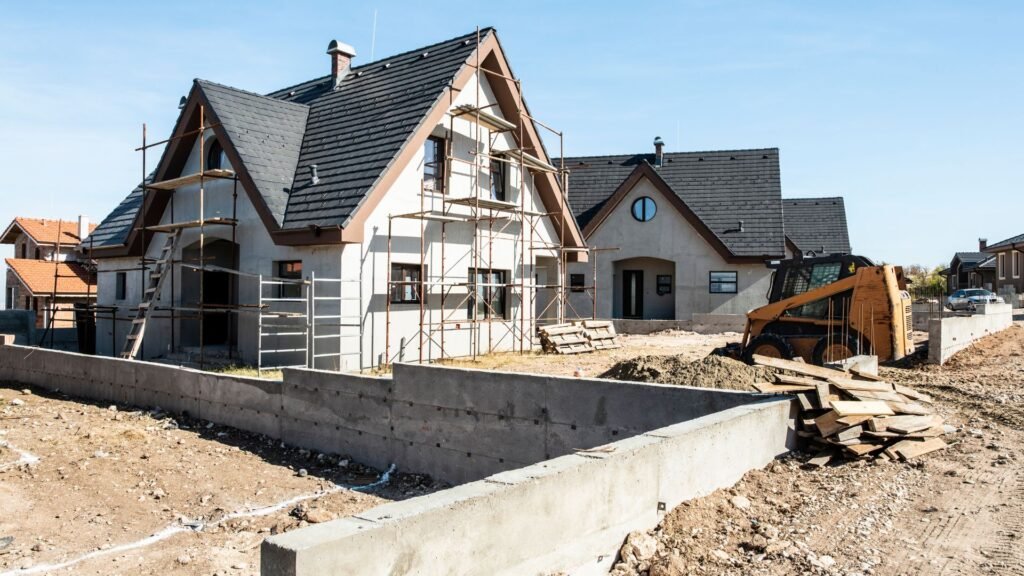
Breaking Down The Costs
When planning a new build in New Zealand, understanding how each cost fits into the overall budget is key. While averages can give a ballpark figure, your final price depends on the site, design, and the choices you make along the way. Below is a closer look at the main cost categories, along with typical ranges you might expect.
Land Purchase
Although this guide focuses on building costs, it’s worth mentioning that land purchase often represents the largest upfront expense. Prices vary widely depending on location, with sections in major cities like Auckland and Wellington costing significantly more than rural areas or smaller towns. Buyers should also factor in land slope, accessibility, and zoning rules, as these can increase site preparation costs later.
Site Preparation
Site preparation is where costs can surprise new homeowners. This stage includes earthworks, foundations, and drainage. A flat section may only require minimal work, while a sloped site or one with poor soil can push costs up dramatically. On average, earthworks and drainage range between $20,000 and $50,000, with complex sites costing even more. Investing here ensures the stability and safety of the home long term.
Construction Costs
Construction is the largest part of your budget and covers both materials and labour. The cost per square metre in New Zealand generally falls between $2,500 and $4,000, depending on design, finishes, and building region. A simple, single-storey home will sit at the lower end, while a custom or architecturally designed home will be higher. Material choices, such as timber, roofing, windows, and insulation, also influence the final figure.
Professional Fees
Professional expertise is essential in every build. These fees cover architects, engineers, surveyors, and project managers who ensure compliance and oversee the build process. Professional fees typically account for 5–15% of the total build cost, with more complex designs requiring greater input. While these costs may feel high, skipping expert guidance can lead to costly mistakes later.
Council Consents And Permits
Every new build in New Zealand requires council approval, which comes with its own set of fees. These include building consents, resource consents, and inspection charges. Costs vary by region but usually fall between $5,000 and $15,000. Allowing for these upfront ensures there are no delays in the approval process.
Finishing Touches
Finishing touches bring your home to life and should never be overlooked. These include landscaping, driveways, fencing, and sometimes decks or patios. Depending on the scope, finishing touches can add $15,000 to $50,000 or more. Some homeowners choose to stage these costs by completing basic essentials first and adding extras over time to ease the financial load.
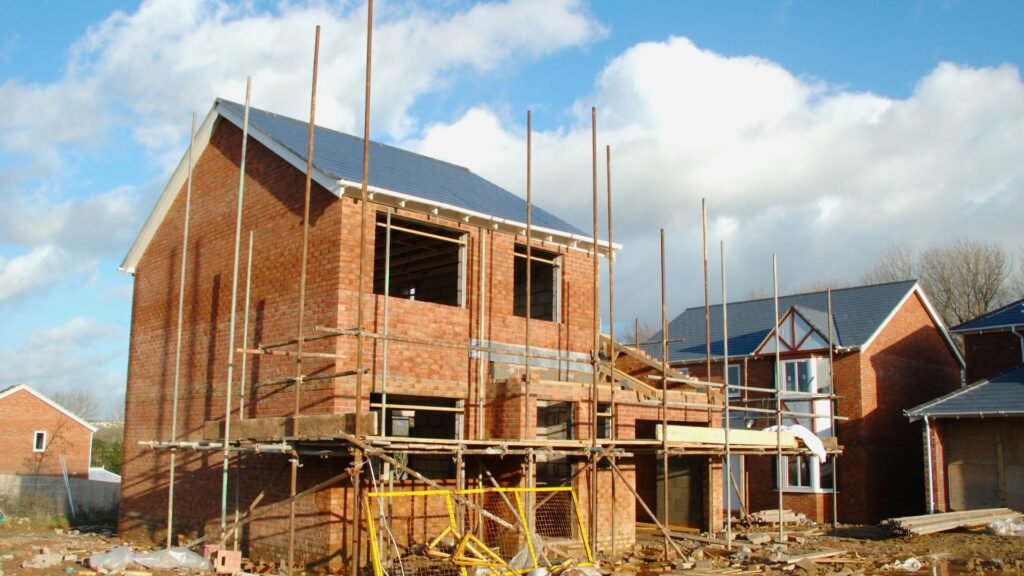
How New Build Costs Compare To Buying Existing Homes
When deciding between building a new home or buying an existing one in New Zealand, cost is usually the first concern. At first glance, purchasing an existing property may seem more affordable because the upfront costs are clear and immediate. You pay the sale price, cover legal fees, and move in. With a new build, however, costs can stretch over time and may feel higher at the beginning, especially when you factor in land purchase, site preparation, and construction. The flip side is customization, new builds allow you to design a home around your needs, while an existing home often requires compromises or renovations.
Pros And Cons: Upfront Costs Vs. Customization
- Buying Existing: Lower upfront costs, quicker move-in, but limited flexibility. You may need to spend more on upgrades or maintenance later.
- Building New: Higher upfront investment, but you get exactly what you want. Everything is brand-new, reducing the need for costly repairs in the first few years.
Market Trends: When Building May Save Money Long Term
In recent years, rising property prices in major cities like Auckland and Wellington have pushed many buyers to consider new builds. While the initial expense can be higher, long-term savings often come from lower maintenance, better energy performance, and government incentives for first-home builders. Market conditions also play a role, when existing homes are overpriced, building can actually be the smarter financial choice.
Lifestyle And Energy-Efficiency Considerations
A new build provides more than just financial benefits. Modern homes are designed with energy efficiency in mind, from double glazing and insulation to solar-ready roofs. These features help reduce power bills and create a more comfortable living environment. Lifestyle is another factor, building gives you the chance to choose your layout, add extra storage, or design open-plan spaces suited to modern family life. Existing homes, especially older ones, may lack these features and require renovations to bring them up to standard.
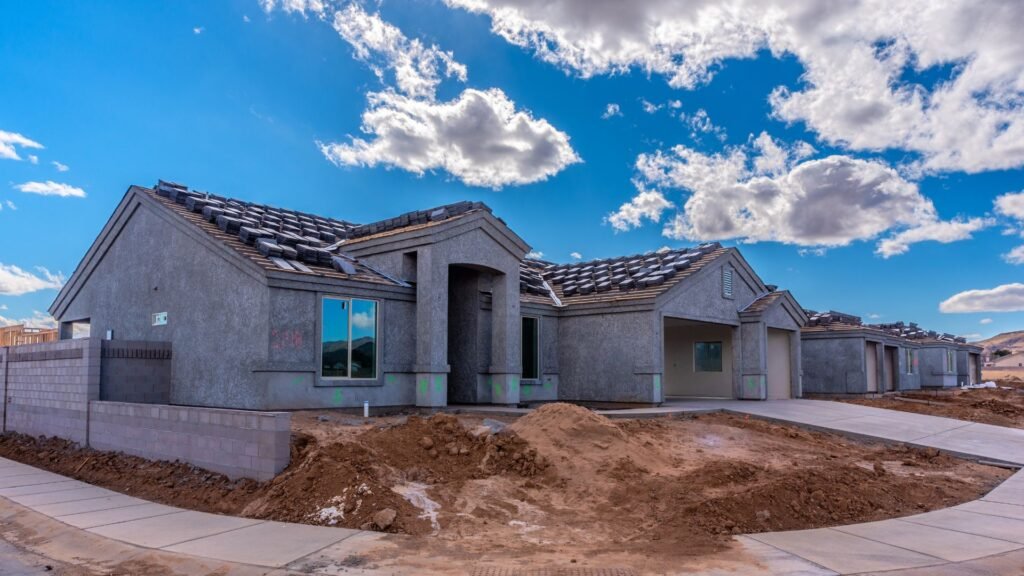
Cost-Saving Tips Without Compromising Quality
Building a new home in New Zealand can feel overwhelming when you look at the numbers, but there are smart ways to cut costs without cutting corners. The goal is to make thoughtful choices that lower your expenses while still giving you a house that feels like home. Below are practical tips that many Kiwi homeowners have used to keep their new build budgets under control.
Choose A Standard Plan Instead Of Custom
Custom designs are attractive, but they come with higher architect fees, longer timelines, and more risk of budget blowouts. By choosing a standard plan offered by a builder, you can save thousands while still enjoying modern layouts that meet your family’s needs. Many standard designs can be slightly modified for personal touches, making them a great balance between affordability and style.
Build Smaller But Smarter
Bigger doesn’t always mean better. A smaller home with a clever floor plan can feel just as spacious as a larger one, and it costs significantly less to build. Focus on efficient layouts such as open-plan living areas and multipurpose rooms. A well-designed 120m² home can often serve a family just as well as a 180m² house, while reducing both building and long-term heating costs.
Stage Non-Essential Add-Ons
Not every feature has to be completed the moment you move in. Items like decks, landscaping, or a driveway upgrade can be added later once your finances recover. Staging these extras allows you to focus on the essentials first, getting the house built and livable, while spreading out other costs over time.
Get Multiple Quotes For Trades
One of the easiest ways to save is by comparing quotes from different tradespeople. Prices for plumbing, electrical work, or painting can vary widely between providers. Don’t just go with the first quote you receive; aim for at least three, and don’t be afraid to negotiate. This process not only ensures competitive pricing but also helps you choose reliable contractors with solid reputations.
Select Durable But Cost-Effective Materials
It’s tempting to choose high-end finishes, but not every material needs to be top-of-the-line. Look for products that balance durability with affordability. For example, laminate benchtops often mimic the look of stone at a fraction of the cost, and vinyl flooring can be both stylish and long-lasting. By making smart material choices, you can cut upfront costs while still enjoying a modern, low-maintenance home.
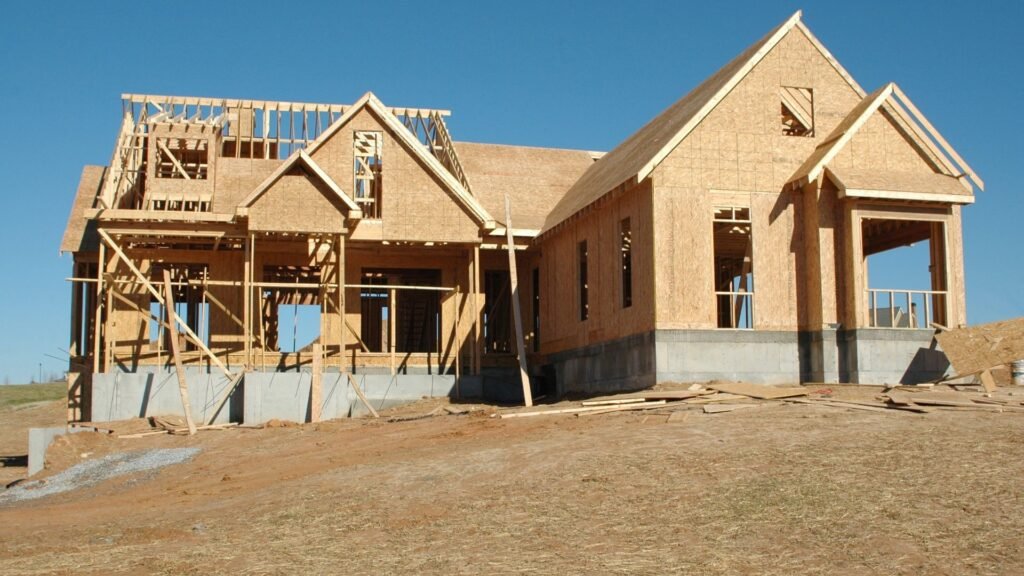
Common Hidden Costs To Watch Out For
When planning a new build in New Zealand, it’s easy to focus on the base construction price. But many homeowners quickly discover that the final bill can be much higher than expected. These hidden costs don’t always appear in the initial quote, yet they have a major impact on your budget. Knowing what to expect helps you avoid financial stress and keep your project on track.
Delays And Supply Chain Issues
Delays are one of the most common reasons costs climb during a build. Even a well-organised project can face setbacks when materials arrive late or a contractor becomes unavailable. Supply chain disruptions, like shortages of timber, steel, or imported fixtures, can force builders to pause work. These pauses often lead to extra expenses such as extended rental costs for temporary housing or additional labour charges. To protect your budget, always include a contingency fund of at least 10% to cover unexpected delays.
Upgrades Outside The Contract
It’s tempting to upgrade finishes once construction is underway. Maybe you decide you want a stone benchtop instead of laminate or hardwood floors instead of carpet. While these choices add long-term value, they also add thousands of dollars beyond the original contract. Builders often price upgrades at a premium because changes mid-build disrupt schedules and ordering. The best way to avoid this hidden cost is to finalise design choices before signing the contract and limit changes once work has started.
Unforeseen Site Work (Rock, Soil Problems)
Not all land is equal, and what lies beneath the surface can dramatically change your costs. Some sections require extensive earthworks to deal with unstable soil, steep slopes, or unexpected rock. For example, hitting rock during excavation means extra machinery time and specialist equipment, which can quickly add $10,000–$30,000 to your budget. Soil contamination or poor drainage can also trigger expensive fixes. Always invest in a thorough site survey before buying land to reduce the risk of surprises later.
Inflation And Rising Material Costs
The cost of building materials in New Zealand has risen sharply in recent years, and inflation continues to drive prices upward. Items like timber, roofing, insulation, and concrete are particularly vulnerable to global price changes. A quote you receive today may not reflect the cost six months from now when your builder is ready to order supplies. To avoid being caught off guard, ask your builder how long their quote is valid for and whether price escalation clauses apply. Planning ahead with a buffer in your budget is essential.
Every build has the potential for hidden expenses, but careful planning can keep surprises to a minimum. By preparing for delays, limiting upgrades, checking site conditions thoroughly, and budgeting for rising prices, you’ll be better positioned to complete your new build in NZ without blowing your budget.
Building a home doesn’t have to be overwhelming. Explore our homepage for clear answers and expert advice on every stage of the process.
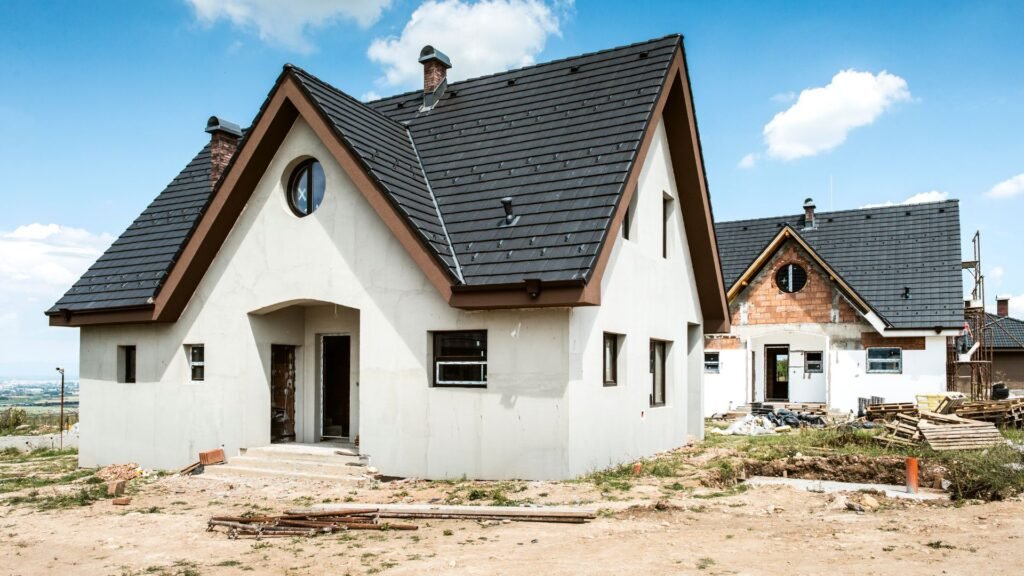
FAQs: About New Build Cost In NZ
How much does it cost to build a house in NZ in 2025?
The average cost ranges from $2,500 to $4,000 per square metre, depending on location, design, and materials. A standard 3-bedroom home may cost $450,000 to $600,000.
Is it cheaper to build or buy a house in NZ?
Building allows customization but often costs more upfront than buying an existing property. Buying may be cheaper in the short term, but a new build can save on maintenance and energy costs long term.
What is the cost per square metre for a new build in NZ?
Expect between $2,500 and $4,000 per square metre. High-spec homes or builds in Auckland can push costs above this range.
What factors affect new build costs in NZ the most?
Location, size, design complexity, materials, and labour rates all influence final costs. Council fees and site preparation also add significant expenses.
How much does it cost to build a 3-bedroom house in NZ?
A typical 3-bedroom home costs between $450,000 and $600,000, depending on design choices and region.
How long does a new build take in New Zealand?
Most builds take 8 to 12 months, but complex designs or supply delays can extend the timeline.
Are there hidden costs in new builds?
Yes. Common hidden costs include earthworks, site drainage, consent fees, design upgrades, and delays from supply chain issues.
Can first-home buyers get help with new build costs in NZ?
Yes. Government support such as the First Home Grant may apply to eligible buyers, though conditions and limits vary.
How can I save money on a new build in NZ?
Choose standard plans instead of custom designs, build smaller but smarter, stage add-ons like landscaping, and compare quotes from multiple builders.
Do new builds in NZ hold their value?
Generally yes. New homes often hold value well due to modern design, energy efficiency, and low maintenance, especially in high-demand areas.
Conclusion
Building a new home in New Zealand is an exciting journey, but it comes with a wide range of costs that can quickly add up if you’re not prepared. While the average new build cost in NZ typically falls between $2,500 and $4,000 per square metre, the final price depends on factors like location, design, materials, and site preparation. The key takeaway is that costs vary, but careful planning helps reduce surprises. Always budget with a buffer to cover hidden expenses such as council fees, unexpected site work, or material price increases. By allowing extra room in your budget, you’ll protect yourself from stress and delays later on. Before making any big decisions, it’s smart to seek a professional estimate tailored to your project. That way, you’ll have a clear picture of what’s realistic for your budget, avoid costly mistakes, and move forward with confidence knowing your dream home is within reach.

